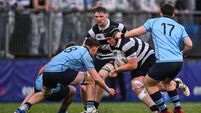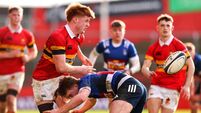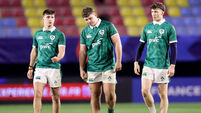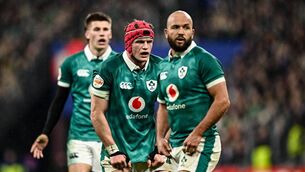Over and out
There was a palpable air of sadness surrounding the Irish dressing room area in the hour after yesterday’s final pool game as the grim realisation struck home. Ireland are out before the big guns even begin to shift through the gears.
No doubt there will be copious reviews conducted from within the IRFU, the media, and the general public as rugby people everywhere attempt to rationalise the complete systems failure that has overtaken this Irish team in the past month.















